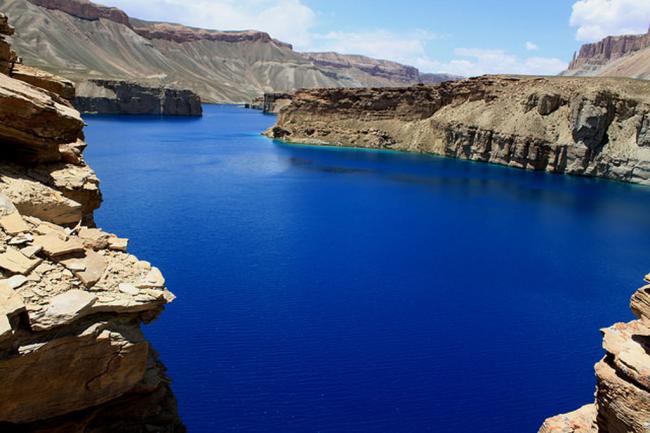
Afghanistan: Improving ways to settle water disputes key to economic growth, avoiding conflict – new UN report
“As this report clearly outlines, the stakes involved in water disputes are high,” said the Secretary-General's Special Representative for the country, Tadamichi Yamamoto, in a news release.
“Resolving these disputes peacefully is of critical importance,” added Yamamoto, who also heads the UN Assistance Mission in Afghanistan (UNAMA).
Outlining the importance of water to the country's economy, the UNAMA report, titled Water Rights: An Assessment of Afghanistan's Legal Framework Governing Water for Agriculture report, notes that formal and informal means are used to resolve water-related disputes in the country, including the 2009 Water Law, along with traditional customs and practices associated with the longstanding authority and community respect for water masters, or mirabs.
One key finding is that water users continue to rely predominately on local water masters to resolve disputes, largely due to gaps in the Water Law's scope and associated administrative structure.
Michael E. Hartmann, Director of UNAMA's Rule of Law Unit, stated that this finding “confirms that the challenge is not with the law as written but, rather, with the law as implemented,” and that “UNAMA will continue to assist in achieving broader implementation of the Water Law.”
Almost 80 per cent of Afghans derive their livelihood from the agricultural sector. Many rural communities depend on reliable access to water sources to grow the crops and nourish the livestock on which their lives and livelihoods depend.
The report documents the results of a field study designed to assess the effectiveness of dispute-resolution mechanisms, and also provides practical recommendations to facilitate the resolution of disputes without escalation to violence.
The recommendations include:
The Water Law's administrative structure should be fully implemented in all water basins by establishing the councils, sub-councils, and user associations the law anticipated;
The Supreme Council of Water Affairs Management, which the Water Law established to improve coordination and implementation of water resource programs, should utilize its authority to streamline the management of water resources among the responsible ministries and departments;
The process for dispute resolution with the possibility of judicial review thereafter should likewise be streamlined so that administrative decisions may be implemented without interfering with crop growth or harvesting. Temporary orders or forms of relief should be fashioned to ensure that crops are not lost due to delays in resolving water rights;
To ensure adequate remedies for those whose water rights have been violated, administrative or judicial officials should award financial compensation for direct and consequential damages, including fair market value of any crops lost, resulting from the violation;
To promote greater transparency, the traditional practices and customs relating to water rights, such as the Taximot Hakobe Ab, should be made publicly available to all water users through provincial and district libraries or the Internet, along with copies of formal and informal decisions made by administrative bodies, courts, and mirabs.
UN Photo/UNAMA
Source: www.justearthnews.com
Support Our Journalism
We cannot do without you.. your contribution supports unbiased journalism
IBNS is not driven by any ism- not wokeism, not racism, not skewed secularism, not hyper right-wing or left liberal ideals, nor by any hardline religious beliefs or hyper nationalism. We want to serve you good old objective news, as they are. We do not judge or preach. We let people decide for themselves. We only try to present factual and well-sourced news.







